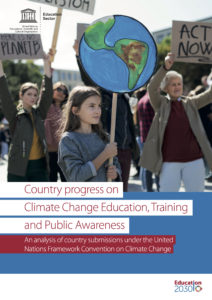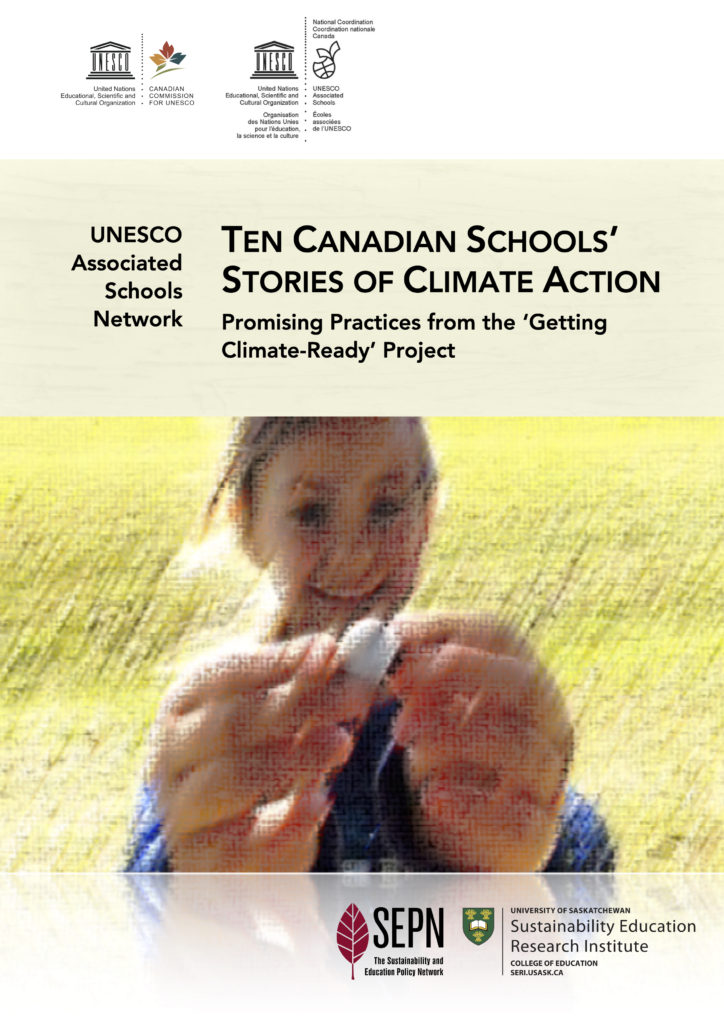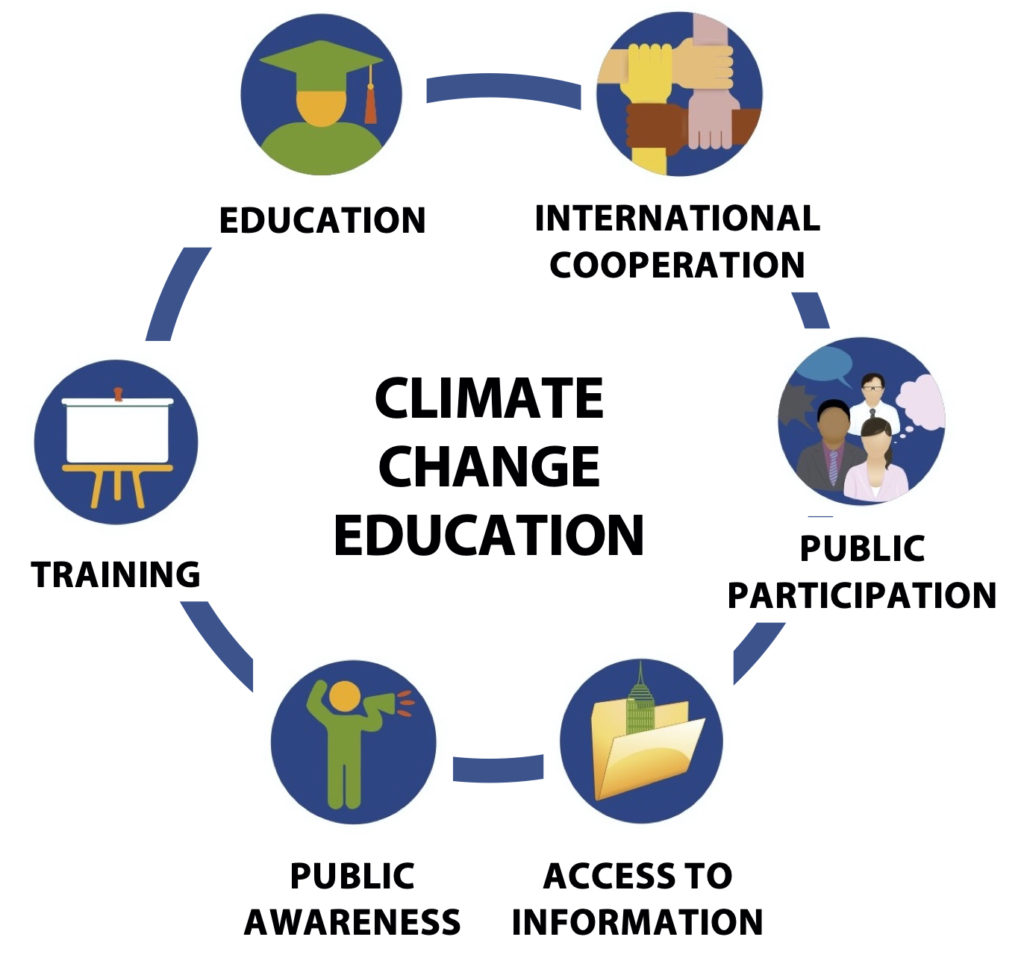
Climate change is the defining challenge of our time, and education and communication are increasingly seen as essential elements for mounting an adequate global response.
Education and communication can help people understand and address climate change, overcome climate denial and inaction, enable the social and political will for climate mitigation, support adaptation to a rapidly changing climate, and overall, increase much needed climate literacy and action around the world.
As the climate crisis is fuelled by ongoing climate change denial and inertia, SEPN is responding to the continued lack of action by governments and citizens.
We have developed an innovative multi-sectoral program of research that is impacting education at all stages of the lifespan, and at local, regional, national, and intergovernmental levels. Read more about our climate change education research below.
To stay up to date on SEPN’s research, sign up for our e-news and follow @SEPNetwork on Facebook and Twitter.

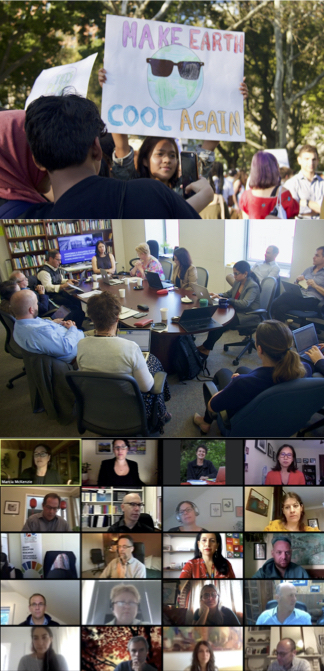
The Monitoring and Evaluating Climate Communication and Education (MECCE) Project
Funder: Social Sciences and Humanities Research Council (SSHRC) Partnership Grant, with partner contributions (2020-2026) ($4.5 million)
Education and communication are fundamental to overcoming climate denial, increasing climate literacy, and supporting climate action. However, we lack clear understandings of effective climate change communication and education (CCE), and global benchmarks and targets to support intergovernmental processes to increase CCE across sectors. MECCE was established in 2020 to respond to these gaps.
MECCE’s goal is to advance climate literacy and action through improving the quality and quantity of climate change education, training, and public awareness globally.
MECCE will support the building of a more educated and aware global citizenry to propel critical and much-needed climate change action and mitigation through three interrelated Axes of activities:
Axis 1: Case Studies is building a repository of case studies from around the world to generate novel understandings of quality climate change education
Axis 2: Indicator Development is developing new monitoring indicators and datasets to support improved global climate change target-setting and monitoring
Axis 3: Knowledge Mobilization is designed to impact intergovernmental and national policy makers, and education and communications audiences with MECCE’s research outputs
The project’s over 80 international partners and collaborators include the United Nations Framework Convention on Climate Change (UNFCCC), the United Nations Educational, Scientific and Cultural Organization (UNESCO), the UNESCO Global Education Monitoring Report, the Intergovernmental Panel on Climate Change (IPCC), Environment and Climate Change Canada, and many others. MEECE’s leadership includes Director Dr. Marcia McKenzie; Project Manager Ms. Nicola Chopin, and project component leads, Drs. Heila Lotz-Sisitka and Aaron Benavot.
Click here to read more about MECCE.
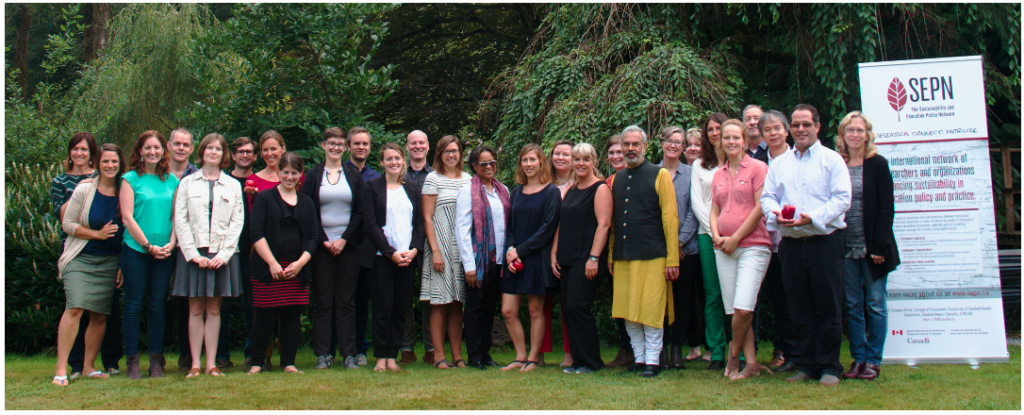

Country Progress on Climate Change Education, Training and Public Awareness
Funder: UNESCO (2019)
This UNESCO Report provides a status update on implementation of climate change education via analysis of country submissions from 194 countries under the UNFCCC. All member countries have signed on to commitments to include ‘Action for Climate Empowerment’ (ACE) in their national strategies to reducing emissions, including increasing quality formal education, training, public awareness, public access to information, public participation, and international cooperation (Article 12, Paris Agreement, 2015; Article 6, UNFCCC, 1992). This study analyzed both Nationally Determined Contributions (NDCs), forward looking documents submitted under the Paris Agreement, as well as National Communications (NCs) reporting on past activities submitted under the original Convention.
While almost all countries included some climate change education and communication content in these, minimal quantitative data were included that could be used for national- or global-level evaluation and monitoring. Most content focused on increasing ‘public awareness’ and on cognitive learning about climate change.
SEPN’s research for this UNESCO Report suggested ways to improve member countries’ approaches as well as reporting under the UNFCCC process. These include:
- Ensure climate change education approaches include formal education, training, public awareness, public access to information, public participation, and international cooperation (all six ACE elements)
- Incorporate social and emotional and behavioural learning approaches and outcomes into country approaches to ACE
- Explicitly target segments of the populations beyond the ‘general public’ and ‘formal education’ sectors
- Collect quantitative data through country submissions to support setting and meeting more specific and ambitious targets for ACE, both nationally and in UNFCCC reporting and SDG monitoring processes
Click here to read the report and see also SEPN’s submission to the UNFCCC on the review of the Doha Work Program and proposed new programme on ACE (2020).


The Influences of Policy Actors on UN Policy Programs on Climate Change Education Project
Funder: Social Sciences and Humanities Research Council (SSHRC) Insight Grant (2020-2023), ($280,000)
This project examines the influences of policy actors on key UN policy programs aimed at supporting high quality and effective policy governance regarding climate change education and communication.
Prominent multilateral UN agreements such as the 2015 Paris Agreement may stand as our best hope for a more sustainable future, and are giving education policy an unprecedented role of significance in catalyzing public support for climate action. This includes through the development of UN policy programs with a focus on climate change education and communication, which will impact policies globally.
However, it is not always clear what the influences are on these policy programs, such as how particular national governments orand individual policy actors can shape processes and outcomes. Consensual and transparent decision-making supports UN mandates, and can maximize the quality and effects of the intended policy interventions in addressing climate change.
By better understanding the influences of policy actors on UN climate change education policy programs, the research aims to contribute to the research literature on intergovernmental organizations, as well as help inform intergovernmental processes aimed at addressing climate change through education.
Stay up to date on this project’s developments by signing up for our e-news.


Building Climate-Ready Schools: Towards Identifying Good Practices in Climate Change Education
Funder: The Canadian Commission for UNESCO (2019)
SEPN was commissioned by the Canadian Commission for UNESCO to conduct the evaluation of the Canadian portion of a UNESCO global climate action pilot program. SEPN’s research identified promising practices in addressing climate change in primary and secondary education using a whole institution approach as a lens. Participating schools were part of the Canadian UNESCO Associated Schools Project Network (ASPnet),
We found evidence of sharing of climate action strategies among the schools, engagement of diverse climate actors in school communities, and creative uses of technology. We also identified that educators often connected climate change-related content to local issues to increase the relevance of climate change to students’ daily lives, and actively engaged students in climate action projects with concrete actions, which can help reduce students’ feelings of being overwhelmed by climate change.
SEPN produced two reports for the project, one overviewing the evaluation results and another highlighting stories of climate action from each pilot study school. The evaluation recommends that future climate change education include:
- Connect to Indigenous knowledge, which is embedded in caring for the land for future generations and often includes crucial locally-relevant mitigation and adaptation strategies
- Expand beyond individual-focused solutions to include a focus on the broader systemic social structures that support climate inaction
- Create a teacher’s guide for incorporating climate change into all subjects
- Develop an easily accessible online platform where schools can readily share ideas, problems, and resources
Read the two reports published as part of this project.

